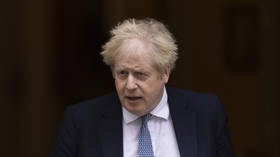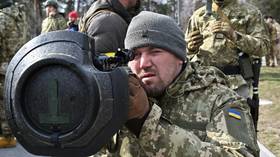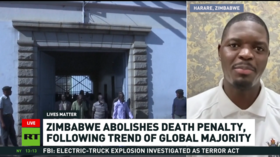Britain wants West to target Russia’s gold reserves

British Prime Minister, Boris Johnson, has called on the West to consider preventing Russia from accessing its gold reserves amid the Kremlin’s ongoing military offensive against Ukraine.
In an interview with London's LBC Radio on Thursday, Johnson called on the West to “do more economically.” The British premier went on to suggest that some extra measures could be applied to stop President Vladimir Putin from “using his gold reserves for instance, in addition to his cash reserves.” Johnson argued that the “more pressure we apply now, particularly on things like gold,” the shorter Russia’s military campaign would be.
According to Britain’s prime minister, Putin has already crossed a “red line,” with the UK leader claiming that the Russian head of state “should appear before the International Criminal Court.”
Notably, Johnson has never called for similar measures to be applied to his predecessor in Downing Street, Tony Blair, or former US President George W Bush over the illegal 2003 invasion of Iraq.
Commenting on Russia’s military attack on Ukraine, he claimed that “there is no question that what they are doing is war crimes.” This undiplomatic characterization of Putin echoed US President Joe Biden’s remark to the same effect last week.
In contrast, describing Ukraine’s president, Johnson was unabashed in his praise of Volodymyr Zelensky, going so far as to compare him to Winston Churchill – the British leader during World War Two. “Absolutely brilliant” and “remarkable” were the epithets Johnson used. In the British premier’s eyes, the Ukrainian president, much like Churchill, gave the “roar,” expressing the Ukrainian people’s “will and their sense of defiance.”
The remarks came ahead of a NATO summit in Brussels on Thursday, where the situation on the bloc's eastern border was top of the agenda.
Since February 24, when Russia launched its offensive against Ukraine, the EU, UK, US and other Western powers have imposed several batches of crippling economic sanctions on Russia, targeting, among other things, its central bank’s assets, major commercial banks, and the country’s leadership directly.













